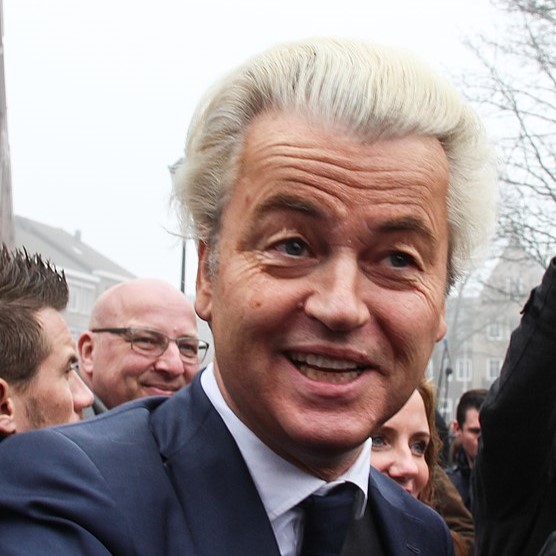In November last year, the far-right Party for Freedom (PVV), led by Geert Wilders, emerged victorious in the Netherlands elections. This win raised several concerns regarding human rights, issues with democracy, and the country’s foreign policies. PVV is known for its Islamophobic, anti-immigrant and climate change denialist positions. Wilders also has a pro-Russia stance, particularly on the Ukrainian issue.
The Netherlands are often viewed as a model of tolerance by many Europeans. The recent electoral success of the far-right in the country came as a surprise to Brussels. At present, Wilders is in talks with other political parties in order to form a coalition government. Given the differences among the potential partners, these negotiations will likely take several months.
Dr Vasiliki (Billy) Tsagkroni is an expert on populism and radical right politics. In an interview with the European Interest, Dr Tsagkroni explained the reasons behind the rise of Wilders’ party and the approaches of other parties, such as the conservative-liberal People’s Party for Freedom and Democracy (VVD), towards migration. She also discussed the conservative environment within which the parties negotiate for the new government and the potential consequences of a Wilders-led coalition for the Netherlands.
European Interest: Geert Wilders performed spectacularly in the early general elections on 22 November 2023. For the first time in the country’s history, the far-right is the largest party in the national parliament. How do you explain such an electoral victory?
Dr Vasiliki (Billy) Tsagkroni: On what can be summarised as a ‘Dutch People First’ approach, Wilders’s nativist, anti-islamic and hard eurosceptic election manifesto argued for welfare chauvinism and closed borders against the influx of migrants, a strong law and order state with zero tolerance to crime, a stop to the hysterical reduction of CO2, a tackling the housing crisis by lowering social rents, increasing rent allowances and awarding more homes to Dutch people, a ‘Nexit’ referendum as a response to European integration, a preservation of the culture, identity and traditions of Dutch society and a ban on Islamic education, Qurans and mosques due to the threat they pose to the freedom and the values of the Netherlands.
To understand the results of Geert Wilders’ PVV, one should look at two emerging trends within Dutch politics: first, the politicisation of migration as a core issue of the election, and second, the normalisation and permissiveness of mainstream parties and media towards the far-right narratives. Firstly, the legitimisation of migration is present extensively in VVD’s ‘make space, set boundaries’ manifesto, putting migration at the centre of the debate, with the party adopting a tightening migration strategy, i.e. clearer clarification of refugee status and a re-definition of ‘core family’ to reduce asylum claims. As it has been highlighted in the literature, the far-right ultimately gains when mainstream parties concentrate on far-right concerns, such as immigration, or alter their narratives to more closely resemble those of the far-right in order to compete. Secondly, against her predecessor, Mark Rutte, Dilan Yeşilgöz-Zegerius, the new leader of VVD, appeared more linear and open for a plausible coalition with Wilders, contributing to the normalisation of PVV’s narrative. Prior to the elections, the media also characterised PVV as moderate, milder and softened in tone, strengthening its appeal to the electorate.
Moreover, the victory of PVV can also be connected with the incompetence of VVD’s governments, including numerous scandals, e.g. child benefit tax fraud, along with the rising dissatisfaction due to economic factors and social security, e.g. housing crisis, that led to minimising the trust in politics and the increasing the dissatisfaction towards the mainstream parties, favouring high volatility amongst the electorate.
European Interest: In recent years, the number of far-right parties has increased in the Netherlands; three are represented in the national parliament. However, the other two parties, Forum for Democracy (FvD) and JA21 managed to enter the parliament again, but with significant losses. Why did Wilders’ appeal prove more successful than the others?
Dr Vasiliki (Billy) Tsagkroni: Indeed, the PVV is not the only far-right party in the country. However, the parties have distinct different ideological profiles and a different history in the country’s political scene. Wilders has been the longest-serving member of the Dutch parliament, with a consistent presence since 2006. The decades of political experience and the communicational charisma of Wilders made him the reliable alternative against the conspiracist, pro-Putin, racist, antisemitic and homophobic FvD, led by Thierry Baudet, or the newest formed far-right party of JA21, founded by ex FvD members Joost Eerdmans and Annabel Nanninga. The numerous controversies of FvD followed by splinter parties weakened the support towards the party, while the newly formed parties failed to create and maintain a loyal electoral base, with the attention, therefore, being drawn to the moderate, viable and equitable in the eyes of far-right supporters option of Wilders’ PVV.
European Interest: The new leader of VVD has a tough position on migration. Also, the New Social Contract (NSC) has a conservative approach to migration and climate change. Does this mean the traditionally tolerant Dutch society is experiencing a conservative shift?
Dr Vasiliki (Billy) Tsagkroni: There is this misinterpretation that the turn to a conservative approach, e.g. migration or EU integration, is a relatively new phenomenon in Dutch society. It is already since the 2000s and the Pim Fortuyn List (LPF) that migration and multiculturalism became defining issues of far-right parties in the Netherlands and had been amalgamated into the political debate. In more recent years, in 2017, Mark Rutte, Prime Minister at the time, released an open letter warning migrants to ‘act normal or go away’, urging foreigners to integrate or otherwise leave the country. The letter at the time was perceived as an attempt by Rutte to respond to PVV’s capitalisation of migration by adopting a tougher migration attitude himself and attracting far-right voters for his party. And let’s not forget that in July, it was a disagreement over migration policy that led to the cabinet’s resignation and marked the end of Rutte’s thirteen years of governance. Moreover, Rutte had also acknowledged that arguing for more European integration could lead to strengthening anti-EU sentiments and support of far-right parties. When it comes to climate change, and with migration monopolising the debate, the effect of anti-climate rhetoric on the result is not apparent. Nevertheless, in a country that used to praise itself for its ambitious efforts to tackle global warming, the success of PVV would most probably have a significant influence on setting climate policy since its stands among others is to extract more oil and gas from the North Sea and stop building wind turbines and solar farms, abolish Dutch climate act and withdraw from Paris Agreement.
While the Netherlands has been regarded as one of the most socially liberal countries, the result of the elections didn’t come as a surprise to many who make a distinction between the idea that Dutch tolerance directly means progressiveness. In the end, the difference lies in the semantics: tolerance simply endures people who are different, while acceptance moves past that and promotes an environment of equity. Therefore, Dutch tolerance forms a barrier to genuine acceptance, with ‘tolerance’ implying itself a deviation from a particular norm and creating different legitimisations of acceptance in relation to different groups.
European Interest: The Dutch political system applied a “cordon sanitaire” around far-right parties. Although Dilan Yeşilgöz-Zegerius (VVD leader) excluded participation in a Wilders-led Cabinet, and Pieter Omtzigt (NCS) also said cooperation would be difficult due to extreme positions of Wilders, the possibility of an end to such a “cordon sanitaire” exists?
Dr Vasiliki (Billy) Tsagkroni: In the case of the Netherlands and these elections, I wouldn’t call it strictly a ‘cordon sanitaire’. In the end, although VVD stated that the party wouldn’t form a coalition with PVV, the party didn’t decline possible support to a minority coalition government led by Wilders’ party. Similarly, NCS, the fourth largest party, also remains open to forming coalition discussions with PVV, and the same stands with BBB (Farmer–Citizen Movement). The strong anti-Islamic rhetoric, the hard Euroscepticism and the proposition to halt military and financial support to Ukraine of PVV appears to be the struggling points to get parties to join coalition discussions. However, forming a coalition involves compromises and is often a time-consuming process; therefore, it is too early to estimate how the discussions will evolve. Nevertheless, forming a coalition is only the first challenge since maintaining the coalition does not fall appears to be an equally difficult challenge in the Netherlands.
European Interest: Given the extreme Islamophobic positions of Wilders, what consequences for the Dutch society a Wilders coalition government would have? Also, given his anti-EU positions and pro-Putin stance, will such a coalition government impact Dutch relations with the EU?
Dr Vasiliki (Billy) Tsagkroni: If Wilders manages to put together a governing coalition, it is likely to be due to scaling back some of the party’s radical positions for a more moderate stand. However, this is not expected in the case of migration and law and order policies, which are most likely to change following a harsher line under the leadership of Wilders, and the same stands for climate policies, especially in the scenario where BBB is a coalition partner, domestically and internationally. Europe has already experienced a shift closer to far-right narratives when it comes to migration policy, e.g., Sweden, Hungary, Slovakia, and now the Netherlands, a trend that is expected to continue in the upcoming years. Additionally, strong Eurosceptic voices remain loud across Europe, voices that were strengthened by the result of the recent Dutch elections. However, at a European level, the election results didn’t seem to be alarming for Brussels.

Dr Vasiliki (Billy) Tsagkroni holds a PhD in politics from Queen Mary University London (2015), and a MA from Panteion University of Athens (2008) and a BA from the same institution (2005). Their main research and teaching interests include political marketing and branding, political communication and social media, populism, policy making, comparative politics, radical right politics and research methods.

